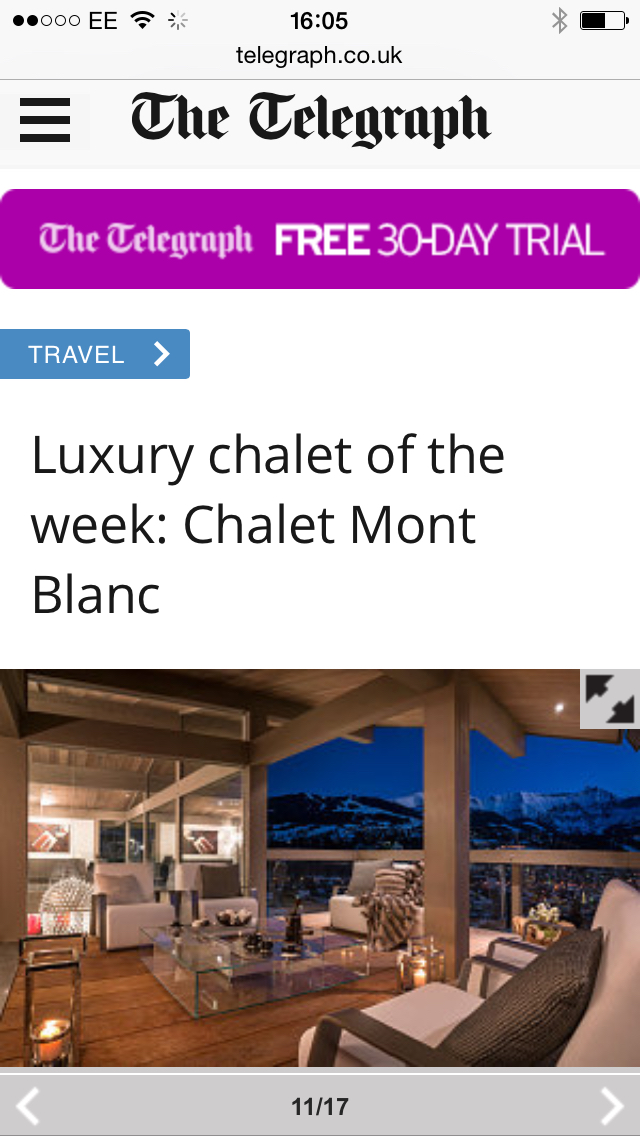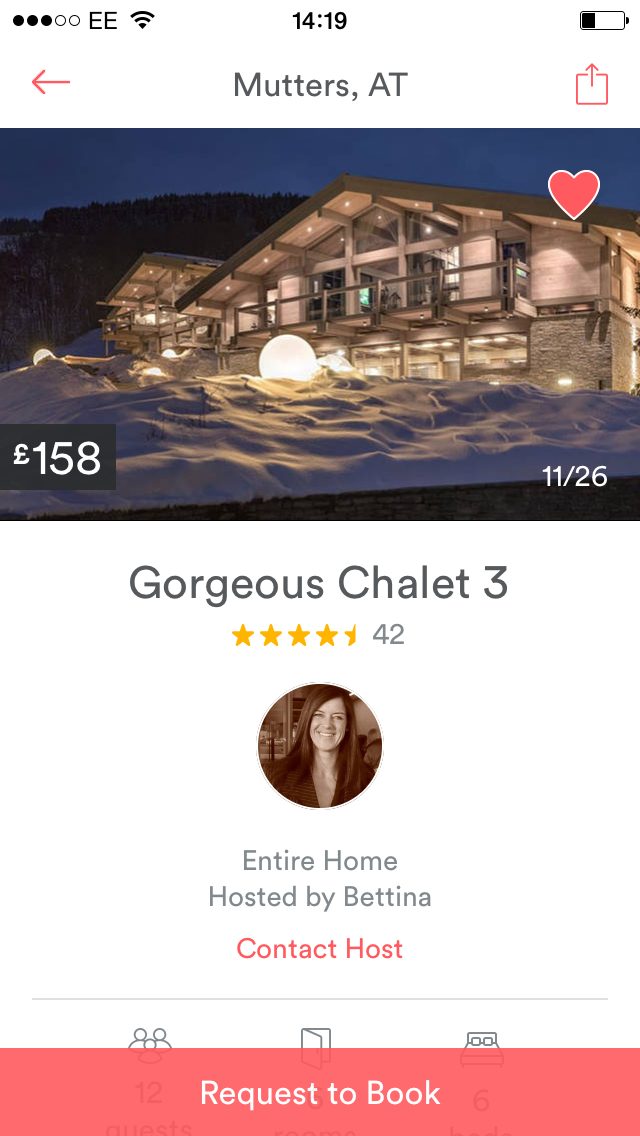With 50 million global users, the popularity of Airbnb is huge but online fraud is growing in equal measure, and scammers are coming up with ever-more ingenious ways to get your money.
While most people have nothing but positive experiences to report using peer-to-peer accommodation rental platform Airbnb, the problem of fake listings is one that can trip up even the more web-savvy among us.
As part of the sharing economy, sites such as Airbnb rely on user reviews to validate what is being advertised. Anyone posting an apartment on the site can also have their personal information verified (this is known as Verified ID), meaning users can be certain of who they are dealing with.
Airbnb also guarantees messages and payments are secure, as long as they are made through the website. Money is only ever transferred to hosts 24 hours after the booker has checked into the property so, in theory, the platform is trustworthy and secure.
Straight-forward listings that are 100 per cent fake are easier to spot as there aren’t going to be any genuine reviews for them (these can only be posted by users after a stay is completed) and the host won’t have a Verified ID.
However, photos of gorgeous interiors and affordable prices can lure people in, and scammers can soon get bookers to transfer money direct to their bank accounts. Sometimes the first time the renter realises they have been a victim of a scam is when they turn up to the address with their luggage, only to find it doesn’t exist.
When scouring Airbnb for a chalet in Europe for Christmas, Globetrender uncovered a more sophisticated online scam, one that was harder to spot than the average fake and would have required hacking the host’s account.
“Gorgeous Chalet 3”, in Mutters, Austria, was listed by Airbnb-verified host Bettina, complete with smiling photo and 42 reviews from real people. It had six bedrooms and was priced at an incredible £158 a night.
 We were immediately excited about the prospect of staying in such an amazing place, so promptly sent a message to Bettina via Airbnb asking if she had availability over the festive period.
We were immediately excited about the prospect of staying in such an amazing place, so promptly sent a message to Bettina via Airbnb asking if she had availability over the festive period.
However, upon closer inspection of the listing, we became suspicious as it stated a ream of extraordinary extras – from a champagne reception on arrival and dinner every night, to a “resort driving service” and “carefully curated house wines”. This did not sound like Airbnb.
 It was then that we noticed the second picture in the image carousel was a message asking users to contact the host through Gmail.
It was then that we noticed the second picture in the image carousel was a message asking users to contact the host through Gmail.

 “Maybe it’s the wrong price?” we thought, “the reviews seem genuine”, we said. But it seemed to be too good to be true so we investigated further.
“Maybe it’s the wrong price?” we thought, “the reviews seem genuine”, we said. But it seemed to be too good to be true so we investigated further.
We clicked on the first image, and copy and pasted the URL into tineye.com to conduct a “reverse image search”. It came up with a number of sites that the picture had also been published on, one of which was homedit.com.
The luxurious property was called Chalet Mont Blanc and was in Megeve, France, not Mutters, Austria. A quick Google search also confirmed it’s authenticity as an article had also been written about it in The Telegraph. A week’s stay was £300,000.
 Finally, I copy and pasted some of the hotel-style “extras” into Google, and found the text had been taken word-for-word from an oxfordski.com listing.
Finally, I copy and pasted some of the hotel-style “extras” into Google, and found the text had been taken word-for-word from an oxfordski.com listing.
It was disappointing – we’d wanted it to be true. Had we been a little more gullible, we might have followed the instructions to email [email protected], and handed over the request for an upfront £519 security deposit (plus whatever other amount was asked for in advance).
We immediately flagged the listing to Airbnb and, within half an hour, we had an email saying: “I am reaching out because another Airbnb member either requested to communicate with you via private email or Facebook, or sent a malicious message in which you may have been asked to verify your listing, or copy and paste a URL into a new browser window.
“We ask that you halt your communication with this individual immediately. We have removed their account so that you will no longer have access to their message thread.
“At Airbnb, we do everything we can to create a safe and trusted marketplace. Rarely, fraudulent individuals misuse our site in the attempt to obtain offsite payment or to gain access to one’s account by communicating via personal email or phone, or by sending malicious links meant to capture your login credentials, and we wanted to alert you to the possibility of such a scam.
“If you did contact someone via private email, or through a provided URL, please immediately change your Airbnb password and your email password.”
A few minutes later, we returned to the listing to find all the pictures had changed. The price was the same but it was now appearing as a far more modest one-bedroom home. You can see it here.
What had happened, we surmised, was that a fake listing had been transplanted via a hack over the top of a genuine one – this meant the reviews were genuine and the host was verified, making the scam far more believable.
We contacted the Airbnb press office for a comment, but so far none has been provided.
We are big fans of the sharing economy, but it’s important to be web-wise. Take heed of this advice from Airbnb: “Contact information should never be exchanged prior to having an accepted booking. When guests book through Airbnb, their payment is held for 24 hours after check-in.
“The host’s contact information and listing address are only shared with guests with an accepted reservation. This process allows us to protect the safety and privacy of both hosts and guests.
“All legitimate Airbnb user communications and payments will take place on our website. Any paper or PDF invoice requesting payment via bank transfer, Western Union, MoneyGram, or similar offsite vendor should be immediately flagged and ignored.”
By Jenny Southan
UPDATE: Airbnb has since provided this response…
“[The above scam] is an example of phishing, which highlights the need for people to keep their account details secure. Phishing is an issue across the internet and people should never share their personal details to avoid this happening.
“We proactively educate new customers on the importance of keeping their payments and communications strictly on the Airbnb platform, and our global Trust and Safety team works 24/7 to protect our community, prevent attempts at fraud and permanently remove bad actors. We advise our community to keep their account details secure and to keep all payments and communication on the platform.”
Airbnb also provided this handy tip:
Check for professional photography
“Worried that the villa you’ve found is too good to be true? Look for the ‘Airbnb.com Verified Photo’ watermark in the top right corner of the photographs. This means that one of our professional photographers has been to the listing and took the photographs that you’re viewing.”


